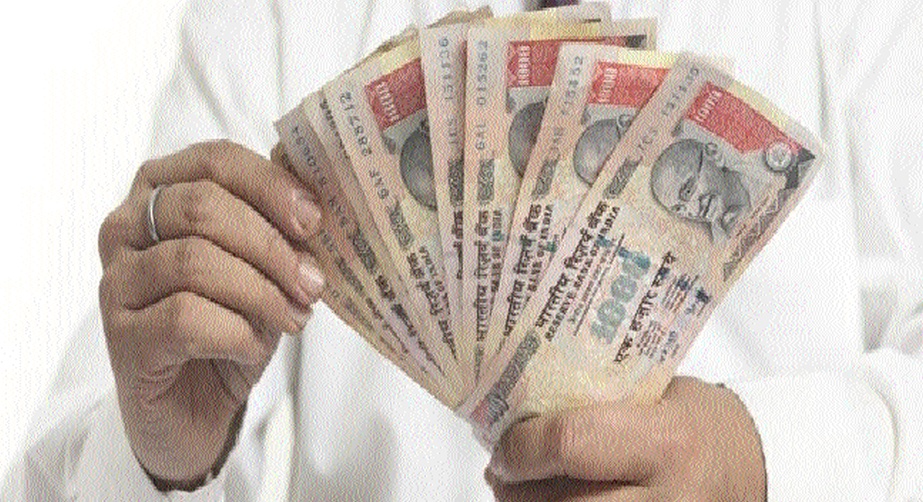My mother’s mangalsutra was sacrificed for country: Priyanka hits back at Modi
Priyanka said the prime minister doesn't understand the value 'mangalsutra' holds for a woman.

Prime Minister Narendra Modi went on national television at
8 p.m. on 8 November to announce that from midnight of that very date, in a
mere four hours’ time, all 500 and 1000 rupee notes would cease to be
legal-tender. The justification advanced for this strange move was that it
would strike at “black money”. An additional argument was thrown in,
to the effect that fake currency notes used by “terrorists” would now
cease its effectiveness or production in the market. This redundant debate was
in turn, superfluously named the “surgical strike against terrorism.”
A long discussion and debate proceeded in the same night.
While the entire internet, especially the social networking sites had turned
into hubs of budding economists who were either approving or disapproving the
decision made by the Government, a spontaneous and fervent doubt arose in my
mind which of course, was mainly of curiosity.
Let’s take a look at the “black money” argument
which the entire nation is out to promote. This argument, namely that the
demonetization of 500 and 1000 rupee notes constitutes an attack on “black
money”, is based on an utter lack of understanding of the nature of
“black money,” a conception built out of improper discern and
staggering analysis.
Advertisement
Firstly, the dormant explanation of black money is the
bundles of cash hideously kept in the reach of none, stored in household items,
under the mattresses or pillows or buried in the earth. This cash when, exposed
and submitted in the bank would let budding suspicions to emerge and the bank,
in turn would convey their suspicion to the tax authorities, claiming that such
a huge hoard of cash indicates the storage of black money.
Here’s the second part of the argument. What if the person
who might have stored 20 lakh beneath his mattress and that too in 500 and 1000
rupee notes, doesn’t come with the entire Rs.20 crores to a bank to change it
into the new legal-tender (he will not be allowed to do so anyway) And, rather
send several hoards of cash in installment to the bank, each carrying a small
amount, and would do so over a number of days prior to the 30 December
deadline. Hence, the rules of getting caught red-handed don’t apply to that
person.
If analyzed at the deeper level, this very concept of
“black money” is inaccurate since it conjures up the image of a stock
of money which is supposed to be held not openly, in the form of bank deposits,
but concealed in the form of currency notes, and that too in pillowcases or
trunks or containers buried inside the earth. “Black activities”,
like “white activities”, are meant to earn profits for those engaged
in them; and simply keeping a hoard of money earns no profits. A major portion
of “black activities”, however, is operated through banks located
abroad. Narendra Modi himself, in his pre-election speech election had talked
of “bringing back” the “black money” stashed abroad, even
though his remark displayed the same naïve understanding that “black
money” referred to a hoard rather than to a range of activities. But if
foreign banks constitute the predominant source of funding “black
activities”, then the demonetization of 500 and 1000 rupee notes, while
causing much hardship to ordinary people, will do little to eliminate such
activities.
Long before the days
of computers, the British Internal Revenue Service had earned the reputation
that it would eventually catch up with any tax defaulter simply through a
process of grinding and meticulous investigation. True, Britain is a small
country compared to India, but that only means that the size of the tax
administering personnel has to be larger, tailored to the needs of the country;
and if this is done, then unearthing “black money”, at least in the
domestic economy, is merely a matter of patient and efficient tax
administration. It is true that this
move will become a means through which the common people will get squeezed,
since the poor and commoners face trouble while opening bank accounts or
handling a credit or debit card. It doesn’t matter whether the change would
actually make any appreciable change but it would surely curb the economical
lives of the poor and commoners. The elites “were” and
“are” pretty far from troubles except a rush and long, tiring queue
in the bank for exchanging the notes.
This “emergency measure”, however, is in line with
the numerous others taken with the thought of greater good for the society
should definitely bring revolutionary change in India
By Sahasika Zaman
Coordinator, Cl. IX, St. Mary’s High School, Coochbehar
Advertisement